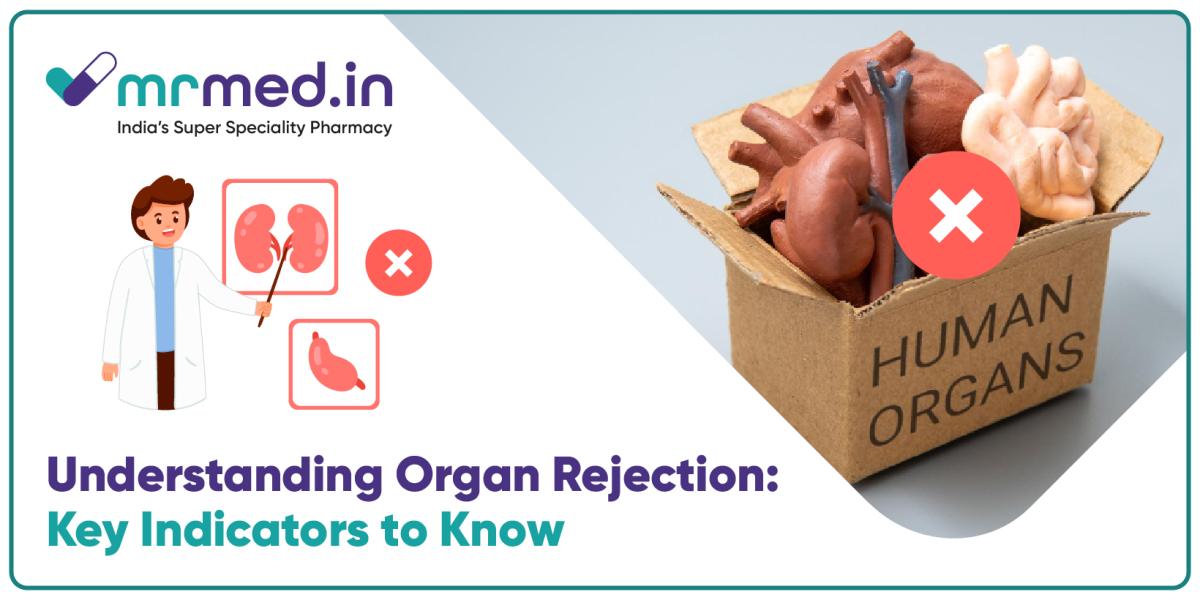How To Know If Your Body Is Rejecting A Transplanted Organ

Organ transplants can be life-saving, but they also come with risks — and one of the most serious is organ rejection. This happens when your immune system sees the new organ as a threat and tries to attack it. Recognizing the early signs of organ rejection is critical for timely treatment and long-term transplant success.
In this article, we’ll cover the warning symptoms, how rejection can differ between organs like the kidney, liver, heart, and lungs, and the tests doctors use to detect it. Whether you're a transplant recipient, caregiver, or healthcare provider, knowing what to watch out for can make all the difference.
What is Organ Transplant Rejection?
Organ transplant rejection happens when the body’s immune system sees the new organ as a threat and tries to attack it. This immune response can put the transplant at risk and affect the patient’s health. Knowing the early signs and symptoms of rejection is crucial because it enables prompt treatment, which can help preserve the transplanted organ.
Common Signs Your Body May Be Rejecting a Transplanted Organ
The symptoms can vary depending on the type of organ that has been transplanted. However, some general warning signs include:
- Fever or chills
- Pain or swelling around the transplant site
- Fatigue or weakness
- Sudden weight gain or swelling in the legs
- Changes in urine output (especially for kidney transplants)
- Shortness of breath (for heart or lung transplants)
- Elevated blood pressure
Unusual lab results, such as increased creatinine for kidney patients
If you notice any of these symptoms, contact your doctor immediately.
Medicines That Help Prevent Organ Rejection
After a transplant, your doctor will prescribe immunosuppressant medicines to lower the chance of rejection. These help your body accept the new organ.
🔹 Mycept 500mg Tablet
Contains Mycophenolate Mofetil, which reduces immune activity and helps prevent rejection in kidney, heart, and liver transplant patients.
🔹 Pangraf 1mg
Contains Tacrolimus, a powerful medicine used after organ transplantation. It is often used in combination with Mycophenolate and steroids to prevent immune attacks on the new organ.
🔹cyclosporine
Cyclosporine works by stopping the production of certain cells. This helps prevent rejection. Cyclosporine is typically used in people who receive kidney, liver and heart transplants. It also can be used to treat severe psoriasis and rheumatoid arthritis.Cyclosporine is available as an oral capsule or can be administered as an injection by a healthcare professional.
Other Medicines May Include:
- Prednisolone (a corticosteroid)
- Azathioprine
- Sirolimus
Doctors may use a combination of these medications based on the type of transplant and your health condition.
What Are the Warning Signs of Organ Rejection?
Different organs show different signs if they are not functioning properly:
- Pancreas Transplant: High blood sugar levels
- Kidney Transplant: Decreased urine output
- Heart or Lung Transplant: Shortness of breath and low stamina
- Liver Transplant: Yellowing of the skin (jaundice) and easy bruising or bleeding.
Know About Kidney Transplant Rejection
Kidney transplants are the most common type of organ transplant. Rejection can show up as:
- Decreased urine output
- High blood pressure
- Swelling in the legs or feet
- Elevated creatinine levels in blood tests
Regular checkups and laboratory monitoring are essential for detecting early signs of kidney rejection. The combination of Mycophenolate Mofetil (Mycept), Tacrolimus (Pangraf), and corticosteroids helps reduce this risk.
Tips to Prevent Rejection
- Take your medicines daily — never skip a dose.
- Avoid over-the-counter drugs without a doctor's approval.
- Attend all follow-up appointments.
- Get routine blood tests as scheduled.
Watch for early symptoms and report them immediately.
Follow a healthy lifestyle that includes a low-sodium diet, abstaining from smoking, and maintaining regular hydration.
What are the common complications after a transplant?
Some possible complications include:
Certain types of cancer – People who take strong immune-suppressing medicines for a long time may have a higher risk.
Infections – Since medications weaken the immune system, the body may struggle to fight off infections.
Loss of organ function – If the body rejects the transplant, the organ may cease to function properly.
Side effects from medicines – Immunosuppressants, such as Mycophenolate Mofetil and Tacrolimus, can cause serious side effects in some patients.
Where to Buy Organ Transplant Medicines Online
You can purchase prescription medicines online, including Mycept 500mg, Pangraf 1mg, and other medications used in organ transplants, from trusted and licensed pharmacies. Ensure you have a valid prescription and follow cold-chain shipping requirements when applicable.
Final thoughts
Recognising the early signs of organ rejection can help protect your transplanted organ. It's essential to listen to your body, take your medications, such as Mycept 500mg and Pangraf 1mg, on time, and schedule regular doctor visits.
If you need to purchase medications for organ transplants online, ensure you use a trusted and licensed pharmacy. Always follow your doctor’s guidance for safe and long-term recovery.
